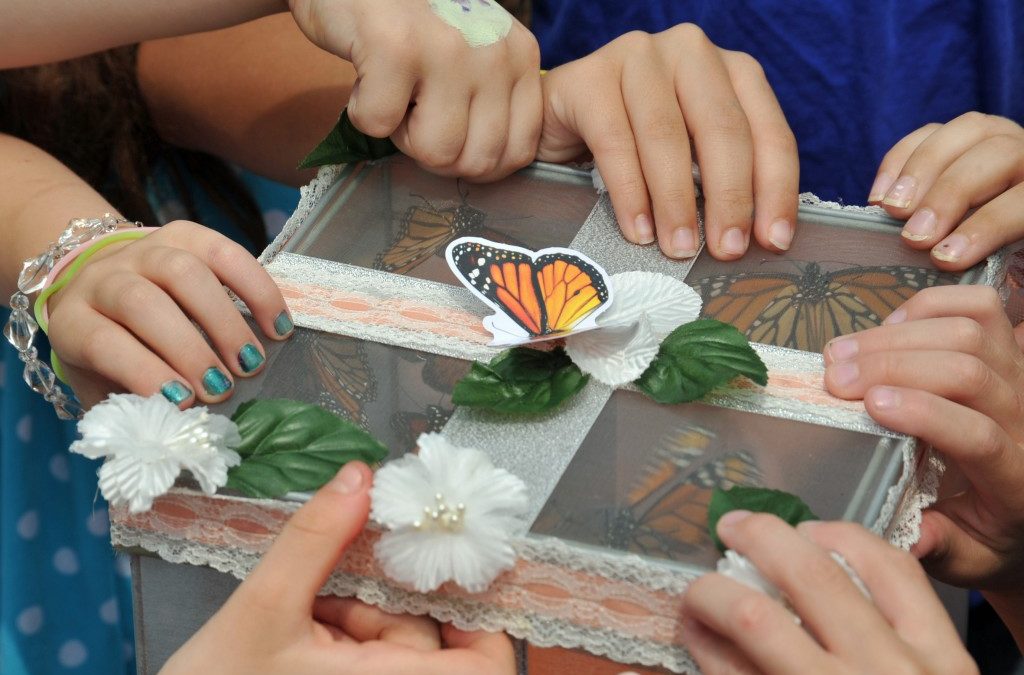Adverse Childhood Experiences and the Future of Trauma Informed Care
With hormones raging and prefrontal cortices developing, it is easier for our tweens to act in a reactionary way than it is for them to reason with the world around them. Adding Adverse Childhood Experiences and trauma to this already tumultuous time can leave tweens acting even more impulsively – with their brains stuck in a constant state of fight or flight.
The ACEs Study
From 1995-1997 the CDC sponsored a study on the impact of Adverse Childhood Experiences, or ACEs. They studied 10 different categories of ACEs: physical neglect, physical abuse, emotional neglect, verbal abuse, sexual abuse, parental abandonment, having an immediate family member in jail, having a parent who is a victim of domestic violence and having a parent with a substance abuse problem (1). Replications of the study have included poverty, divorce, experiencing racism, living in a violent neighborhood, homelessness and more.
Very generally, the original study found that the more ACEs a child experienced, the more likely they would be to face social, physical health and mental health problems in the future. These issues follow victims of trauma into adulthood and include higher rates of divorce, broken bones, substance abuse, depression, auto-immune diseases, absences from work, obesity, teenage pregnancy and more. Specifically, people with four or more ACEs were twice as likely to become smokers, 12 times more likely to have attempted suicide, seven times more likely to abuse alcohol and 10 times more likely to have used illegal drugs than those who experienced none (2).
The Brain and Behavior
Why do ACEs have this effect on us? Researchers have found that exposure to toxic stress actually alters the development of the brain. Exposure to trauma without intervention can lead to a perpetual state of hypervigilance; the control of the prefrontal cortex, or thinking brain, slips while the amygdala, or survival brain, takes over.
It is very hard, or even impossible, for children to listen, learn and appropriately respond to the world around them when living in this prolonged state of fight or flight. When they act out, are inattentive in school, cannot control their emotions, threaten themselves or others or exhibit any other potential behavioral effect of living with ACEs, many times the question is “Why are you doing that and what will your punishment be?” when the question should be “What have you gone through and how can I help?”.
Building Resilience through Trauma Informed Care (TIC)
This is a lot of information for a parent to take in – so many of us already spend too many hours of the day questioning our choices and wondering how our decisions will affect our children. Don’t despair! ACEs can be overcome by building resilience through a practice called Trauma Informed Care.
TIC is a community approach to treating victims of trauma with patience, understanding and forgiveness. Practitioners of TIC, who range from parents to little league coaches to police to healthcare providers, understand that children are not in control. They help trauma victims of all ages develop strategies that will help them regain a sense of control and empowerment, and emphasize physical, psychological and emotional safety.
The Center on the Developing Child at Harvard’s states, “the single most common factor for children who develop resilience is at least one stable and committed relationship with a supportive parent, caregiver or other adult” (3). One committed adult can change the life of a child with exposure to ACEs.
Trauma informed communities are popping up around the country, with amazing results. By implementing TIC, Lincoln High School in Walla Walla, WA reduced suspensions by 85% in one year! The school conducted its own ACEs survey and found that within it’s population 25% of students had experienced physical abuse, 20% experienced sexual abuse, 25% were homeless, 84% had lost a loved one, 66% felt abandoned by their parents, 65% had an immediate family member in jail, 50% lived with someone abusing alcohol or drugs and a staggering 80% suffered from serious depression.
One student explains, “Lincoln’s the first school I’ve been to that I actually loved…it was the first time I ever felt that somebody actually cared to hear my story to know how I was feeling. My own teachers understand me better than my mom does” (4).
What can you do?
One of the best things that you can do to help children suffering from trauma is to respond to outbursts with kindness, patience and understanding – whether it’s your child, a child you work with or a child you see acting inappropriately in public. Erik Gordon, a teacher at Lincoln High, describes how “teachers started becoming detectives…we began focusing our concern on what we know that’s going on that might be causing behavior in a kid versus what type of punishment to mete out” (4).
Educate yourself, and find out if your community is taking steps to become trauma informed. The CDC has determined overcoming the effects of ACEs to be one of our country’s biggest public health challenges. What can you do to help our children? How can you foster relationships with at-risk youth? Remember, all that it takes is one caring adult to make a difference in a child’s life.
Resources
- http://childrenshopeinitiative.com/trauma-informed-care-resources
- http://communityresiliencecookbook.org/
- http://developingchild.harvard.edu/science/key-concepts/resilience/
- https://acestoohigh.com/2012/04/23/lincoln-high-school-in-walla-walla-wa-tries-new-approach-to-school-discipline-expulsions-drop-85/

